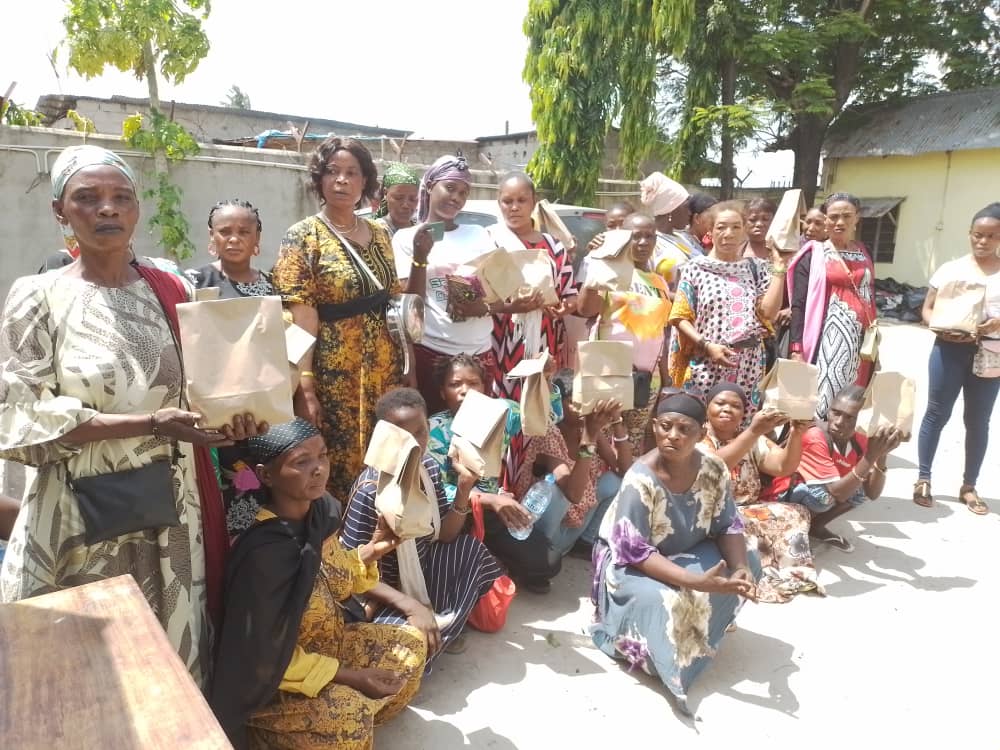1. Executive Summary
This proposal outlines a 12-month project by the Tanzania Community Support Organization
(TCS) aimed at educating and sensitizing 100,000 individuals about MPOX (Monkey pox)
prevention. The project targets high-risk populations, including people living with HIV/AIDS
(PLWHA), women with disabilities (WWD), and other community members, with a focus on
marginalized groups such as individuals, adolescent girls and young women (AGYW), and
female sex workers (FSWs). The initiative will run across various districts in Tanzania, utilizing
a budget of $20,000 USD to implement educational workshops, create informational materials,
and conduct community outreach activities.
2. Background and Rationale
MPOX, a viral zoonosis with symptoms similar to smallpox, poses significant health risks,
particularly to vulnerable populations such as those with compromised immune systems or
limited access to healthcare. The recent uptick in MPOX cases globally necessitates immediate
and targeted educational interventions to mitigate its spread, especially within Tanzania's high-
risk communities.
TCS is well-positioned to lead this effort given its established presence and experience in
community health support, particularly for marginalized and underserved populations.
3. Objectives
1. Increase Awareness: Enhance knowledge about MPOX symptoms, transmission, and
prevention among 100,000 targeted individuals.
2. Promote Prevention: Equip community members with practical tools and strategies to
prevent MPOX infection.
3. Strengthen Community Networks: Build and strengthen networks among local health
workers, community leaders, and marginalized groups to support ongoing education and
prevention efforts.
4. Target Population
People Living with HIV/AIDS (PLWHA): Vulnerable to opportunistic infections due to
weakened immune systems.
Women with Disabilities (WWD): May face barriers in accessing health information
and services.
LGBTQ Individuals: Often marginalized, requiring tailored outreach and support.
High-risk group needing specific prevention strategies.
Adolescent Girls and Young Women (AGYW): At risk of both MPOX and associated
stigmas.
Female Sex Workers (FSWs): Need targeted prevention and education to protect
themselves and their clients.
5. Project Activities
1. Community Workshops: Conduct 50 workshops across various districts, focusing on
MPOX education, prevention measures, and addressing stigma. Each workshop will
accommodate 30-50 participants.
2. Informational Materials: Develop and distribute pamphlets, posters, and digital content
in local languages to ensure broad reach and understanding.
3. Health Workers Training: Train 20 local health workers and community leaders on
MPOX, so they can disseminate accurate information and provide guidance within their
communities.
4. Media Campaign: Utilize local radio stations, social media platforms, and community
notice boards to reach a broader audience with MPOX prevention messages.
5. Support Services: Offer supplementary services such as counseling and support for
affected individuals and their families.
6. Monitoring and Evaluation: Regularly assess the impact of educational efforts and
adjust strategies as needed to ensure effectiveness and reach.
6. Implementation Plan
Phase 1: Planning (Month 1)
Establish project team and recruit additional staff if needed.
Develop educational materials and training content.
Plan logistics for workshops and outreach activities.
Phase 2: Training and Preparation (Month 2)
Train health workers and community leaders.
Distribute informational materials and set up media campaign.
Phase 3: Execution (Months 3-10)
Conduct workshops and outreach activities.
Run media campaigns and distribute materials.
Provide support services as needed.
Phase 4: Monitoring and Evaluation (Months 11-12)
Collect and analyze data on project impact.
Prepare final report and recommendations for future interventions.
7. Budget Breakdown
Workshops and Outreach Activities: $8,000
o Venue rentals, facilitator fees, participant materials, and refreshments.
Informational Materials: $4,000
o Design, printing, and distribution of pamphlets, posters, and digital content.
Health Workers Training: $2,000
o Training materials, facilitator fees, and logistics.
Media Campaign: $3,000
o Radio ads, social media promotions, and community notice boards.
Support Services: $1,000
o Counseling and additional support resources.
Monitoring and Evaluation: $2,000
o Data collection, analysis, and reporting.
Total Budget: $20,000 USD
8. Expected Outcomes
1. Enhanced Knowledge: Increased understanding of MPOX among 100,000 individuals.
2. Improved Prevention: Adoption of effective MPOX prevention practices within the
target populations.
3. Strengthened Networks: Better collaboration among local health workers, community
leaders, and high-risk groups.
9. Conclusion
This project represents a critical step in addressing the MPOX outbreak in Tanzania, particularly
among high-risk and marginalized populations. With a comprehensive approach to education and
prevention, TCS aims to significantly reduce the impact of MPOX and enhance the overall
health and well-being of the communities served.
